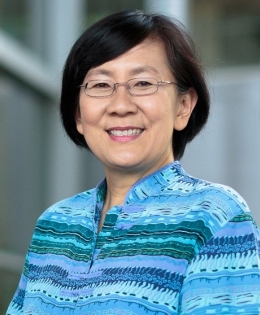
Professor Paulin Straughan
Director, ROSA
Singapore’s population is ageing rapidly. It is projected that the proportion of Singaporeans aged 65 and above will more than double from 8% in 2005 to 20% in 2030, and that by 2050, 38% of Singaporeans will be aged 60 and above[1]. This trend is primarily seen to be the result of declining total fertility rates (TFR) as well as an increasing life expectancy in Singapore[2]. Singapore exhibits one of the lowest TFRs in the world[3] — in 2018, the TFR in Singapore was 1.14, down from 1.29 in 2012, and 1.60 in 2000 (Department of Statistics 2019) — and Singapore’s life expectancy has also been steadily increasing, from 78 years in 2000 to 83.6 years in 2019[4].
An ageing society presents many challenges for policymakers and its citizens. The ageing process sees dramatic transitions in many domains, including economic engagement, family structure and responsibilities, social engagements, and physical and mental health. These are risk factors for an individual’s well-being and ability to sustain a meaningful engagement in the community. Thus, as average life expectancy continues to increase, it is critical for evidence-based research to inform what promotes older adults’ well-being. Additionally, given the broad impact that ageing has on individuals, it is vital to develop more holistic understandings of the well-being of older adults.
This is why I believe that the ongoing work at the Centre for Research on Successful Ageing (ROSA) is so important. Building on the foundations established by the Centre for Research on the Economics of Ageing (CREA), the data gathered from the refreshed Singapore Life PanelⓇ (SLP) at ROSA allows us to gain multidisciplinary insights into Singapore’s ageing situation. Through the Centre’s translational work, we are able to examine Singapore’s policy frameworks and how changes to these policies may lead to improved outcomes for older adults in Singapore and ensure their holistic well-being into later life.
"As Director of ROSA, I am proud to have a team of distinguished academics and researchers — local and international — leading the charge at ROSA."
Among them are some of the most renowned individuals from various fields, and their expertise and experiences are in line with the Centre’s vision of the future. Borrowing from the SGUnited Traineeship Initiative, ROSA has also brought on numerous capable trainees who have been valuable aides to the team.
Under ROSA, the Policy Roundtable was inaugurated and will continue on its track of sharing and discussing findings from the SLP with key organisations connected to the ageing discourse. The aim of which is to provide evidence-based policy recommendations, corroborated by expert opinions, for the latest ageing issues in Singapore. Furthermore, as the repercussions of COVID-19 take hold, ROSA has been one of the first research centres in Singapore mobilised to survey just how much older adults have been affected, with important results. News publications such as The Straits Times, Lianhe Zaobao, CNA, and many more have picked up on our research, publishing findings such as how older adults fare or are trying to cope in this period.
ROSA’s high-frequency method of data collection, coupled with our reliable team of research professionals, positions us at the centre of ageing research in Singapore. The resources on this website will be updated on a regular basis over the next few years as the data collection and research programme gather pace. Whether you are a fellow researcher in a related field of study, a member of the SLP, or a colleague working in the area of ageing, I hope you will find the information and resources on this website useful.
[1] Kwok, Andrew. (2006). Ageing and public policy – A global perspective. Ethos, Is-sue I, 11-15. Retrieved July 1, 2020, from https://www.csc.gov.sg/articles/ageing-and-public-policy-a-global-perspective
[2] Wen, W. K. (2013). Futures of ageing in Singapore. Journal of Futures Studies, 17(3), 81-102.
[3] Straughan, P., Chan, A., & Jones, G. (Eds.). (2008). Ultra-low fertility in Pacific Asia: Trends, causes and policy issues. Routledge.
[4] https://https://www.tablebuilder.singstat.gov.sg/publicfacing/selectVariables.action